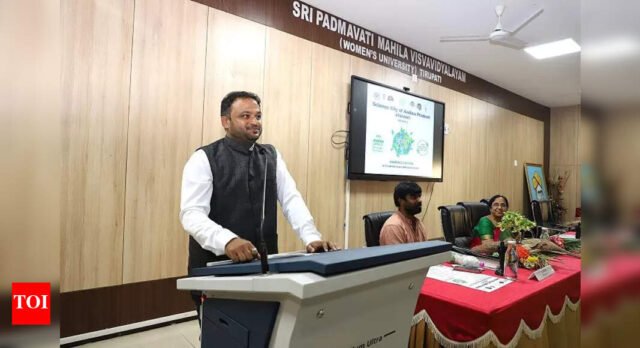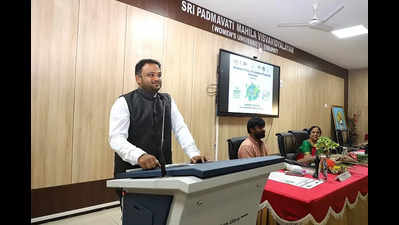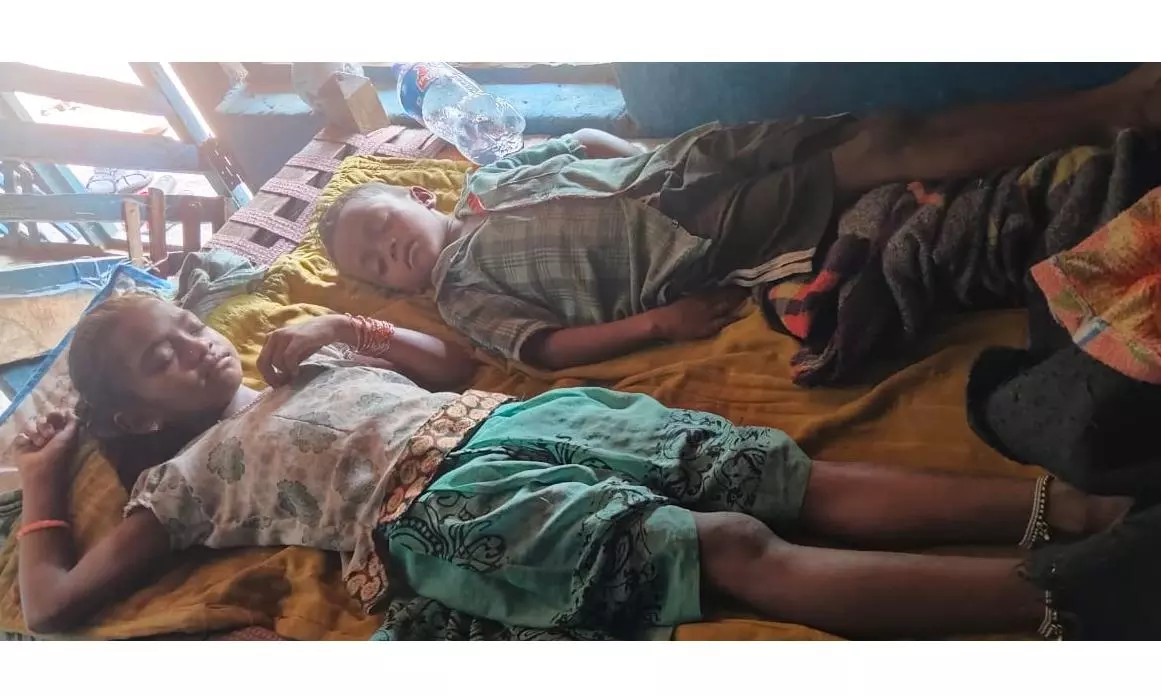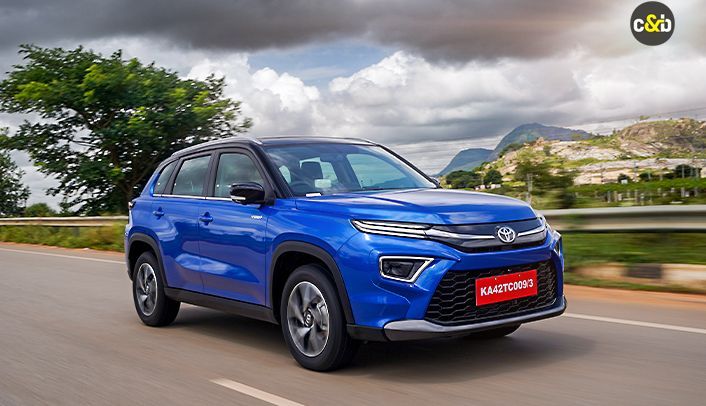VIJAYAWADA: AP science city has decided to launch several initiatives to promote green energy and protection of the environment with the support of students and NGOs. Science city has decided to conduct a hackathon and innovation challenge competition marking the World Earth Day celebrations on Tuesday.
AP science city chief executive officer (CEO) Kesineni Venkateswarlu said that they have lined up several programmes to involve the brightest brains of the students. He said that they will conduct hackathons and also invite innovative ideas to find out the best solution to handle the environmental hazards with effective measures at a low-cost. He said that they would also initiate the seedball distribution programme across the state to promote greenery. He said that they would present awards and also reward the youth coming up with the best ideas.
“Increasing the green cover on a war footing basis is the only way to tackle the natural calamities taking place due to global warming,” said Venkateswarlu. He said that they have selected eight topics for climate tech challenge competition including sustainable agriculture and smart water management, clean and affordable energy access, waste to wealth–circular economy Innovations, climate-smart mobility and low-carbon transport, affordable air and water quality monitoring.
“Green Andhra: Climate Tech-2025”
I. Sustainable Agriculture and Smart Water Management
Problem Area: Overuse of fertilizers, inefficient irrigation, and groundwater depletion.
Focus: Climate-resilient crop planning, drip/AI-based irrigation, water budgeting, low-cost soil sensors.
Impact Metric: Acres of land improved, liters of water saved, yield increased per ₹ invested, solution cost effectiveness, other relevant metrics as per solution.
II. Clean and Affordable Energy Access
Problem Area: Uneven energy access in tribal/rural areas.
Focus: Microgrids, solar cookers, low-cost wind/solar hybrids for homes/schools.
Impact Metric: No. of households electrified, energy savings (kWh), CO₂ emissions reduced, solution cost effectiveness, other relevant metrics as per solution.
III.Waste to Wealth – Circular Economy Innovations
Problem Area: Improper waste segregation, low recycling in semi-urban zones.
Focus: Biogas from food waste, plastics-to-pavement models, e-waste collection systems.
Impact Metric: Tons of waste diverted from landfill, Rs earned per kg of waste recycled, solution cost effectiveness, other relevant metrics as per solution.
IV. Climate-Smart Mobility and Low-Carbon Transport
Problem Area: Polluting auto-rickshaws, lorries and local transport in cities like Vizag, Vijayawada.
Focus: EV retrofitting kits, smart routing apps, battery swapping models.
Impact Metric: Km of CO₂-free travel, cost/km saved, awareness reached through deployment, solution cost effectiveness, other relevant metrics as per solution.
V. Affordable Air and Water Quality Monitoring
Problem Area: Lack of real-time hyperlocal data in industrial and coastal zones for the public, immediate decisions and researchers.
Focus: Low-cost IoT air/water sensors, community dashboards, pollution alert systems.
Impact Metric: Sensors deployed, % improvement in AQI/water quality awareness, areas covered, solution cost effectiveness.
VI. Coastal and Mangrove Ecosystem Resilience
Problem Area: Rising sea levels and mangrove depletion in AP’s coastlines.
Focus: Flying for mangrove monitoring, community-based climate adaptation models.
Impact Metric: Sq km protected, biodiversity preserved, local jobs created in green zones, solution cost effectiveness.
VII. Urban Cooling and Heat Resilience
Problem Area: Rising urban temperatures due to concrete and urban sprawl.
Focus: Cool-roof technologies, urban forestry, climate-friendly construction materials.
Impact Metric: Temperature drop achieved, % increase in green cover, Rs saved in cooling, solution cost effectiveness.
VIII. Climate Education and Digital Awareness Platforms
Problem Area: Lack of climate awareness in youth and rural schools.
Focus: Gamified learning apps, VR-based climate change experiences, vernacular educational platforms.
Impact Metric: No. of students trained, usage hours, behavior change (via survey), solution cost effectiveness, other relevant metrics as per solution.









